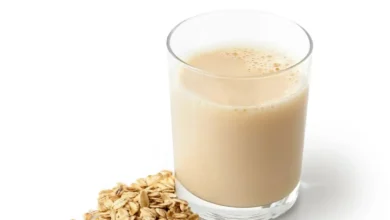Why Starving Yourself Won’t Help You Lose Weight

The only proven method of weight loss, according to the numerous internet fitness gurus, is “calories in against calories out.”
The phrase may have some truth to it, but it falls short of explaining the best strategies for long-term, healthy weight loss.
Because of this, many people have turned to depriving themselves of calories, which might be quite bad for their health.
You’ll discover in this essay why starving yourself won’t help you lose weight and how to use more effective weight reduction techniques.
What distinguishes starvation from sporadic fasting?
If you’re unfamiliar with the phrase, you might assume that intermittent fasting equates to starvation. However, intermittent fasting may be a beneficial and long-lasting habit when carried out correctly.
An eating habit known as intermittent fasting cycles between “eating” and “fasting” phases. The most common variation, for instance, is 16:8, which calls for a 16-hour fast followed by an 8-hour interval for eating.
While losing weight with intermittent fasting is possible, excessive calorie restriction is not the intended outcome. Instead, you just consume less calories each day in a shorter period of time than you normally would.
On the other hand, starvation is typically characterized as a prolonged period without eating or a very restricted calorie intake that is far below your body’s daily requirements. Your body will be in a significant calorie deficit as a result, which will cause uncontrollable weight loss.
A very low calorie diet is typically defined by dietitians as having 450–800 calories or less daily, which is neither nutritious nor sustainable over the long term. Thus, it is not advised to deprive your body of calories because doing so may result in a number of health concerns.
How starvation impacts the body
Your body needs to be in a calorie deficit in order to lose weight, which may be achieved by either taking less calories from food or burning more calories via activity. A greater calorie deficit, however, does not automatically imply that you will lose weight and keep it off.
Even if you might lose a lot of weight at first, it could be tough for you to keep it off in the long run.
Even worse, if you starve yourself, your body may learn to cope with severe caloric deficiencies. Your targeted weight loss program may be hampered by this in the first place.
Your metabolic rate slows
Your body starts to use its fat reserves as its major energy source under prolonged calorie restriction, and muscle and skeletal tissue as its backup energy sources.

Through adaptive thermogenesis, your body gradually lowers your resting metabolic rate (RMR) in response to calorie restriction (metabolic adaptation). Your body uses less energy to burn calories as a result in an effort to conserve as much energy as possible.
This was demonstrated in a groundbreaking research on 14 contestants from “The Biggest Loser.” Participants lost 129 pounds (58.3 kg) on average throughout the 30-week period, and their RMR decreased from 2,607 to 1,996 calories per day on average.
Despite gaining 90 pounds (41 kg) on average, their average RMR remained repressed (1,903 calories per day).
These findings imply that in order to maintain their weight, individuals would need to consume fewer calories and burn more calories, making it harder to maintain weight reduction.
Recent research, however, indicates that when there is no longer a calorie shortfall, metabolic adaption slows down. Most weight regain is believed to be caused by consuming too many calories, which may be brought on by increased hunger and a sense of freedom from calorie restriction.
Additionally, a slower metabolic rate may make you more easily tired. This is a clever defense strategy your body employs to stop you from using excessive amounts of energy. To encourage you to eat, your body also releases more hormones that make you feel hungry.
In the end, your body will make a valiant effort to stop additional weight loss by decreasing your metabolism, particularly during periods of protracted famine.
Your body’s performance is diminished.
Your body may start to slow down unnecessary biological processes like: Depending on the degree of famine, the quantity of calories restriction, and the length of time, your body may start to prioritize critical bodily functions like breathing and heart rate.
- development of hair and nails. Your nails and hair may start to break off.
- Immunity. Your immune system can have a more difficult time warding off disease and infection.
- digestion and control of hunger. You might have erratic or increased appetite, persistent bloating, or stomach pain.
- health throughout pregnancy. Your menstrual cycle could cease or vary.
- Skin care. You can notice accelerated aging or incorrect, delayed wound healing.
- bone wellness. Your bones can start to deteriorate.
Your body craves relief from the harmful state that starvation puts it in. Although you may initially lose weight rapidly, your body will work hard to soon regain your weight and health since it needs adequate calories to operate correctly.
maybe harmful to mental health
Mental health can suffer from starvation and other unhealthy dietary habits.
Starvation diets can cause the emergence of disordered eating habits such food restriction, fear of making poor food choices, a bad connection with food, excessive exercise, and a fixation with size and weight.
Prolonged fasting can, in extreme situations, lead to the onset of an eating problem like anorexia nervosa, bulimia nervosa, or binge eating disorder.
It’s crucial to speak with a healthcare provider who can connect you to a specialist if you think you could be developing an eating disorder or disordered eating practices. For help, you may also call the National Eating Disorders Association Helpline.



